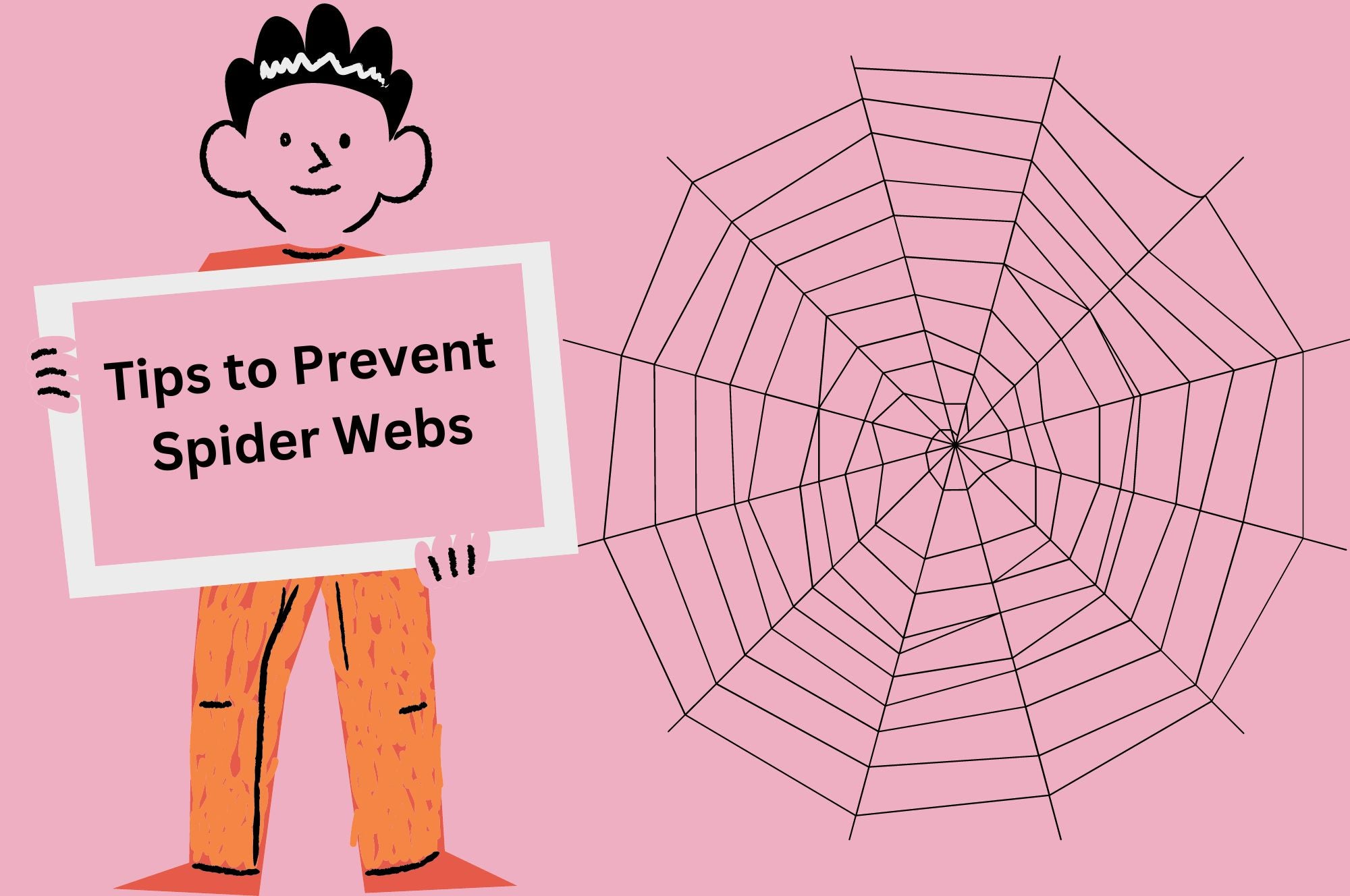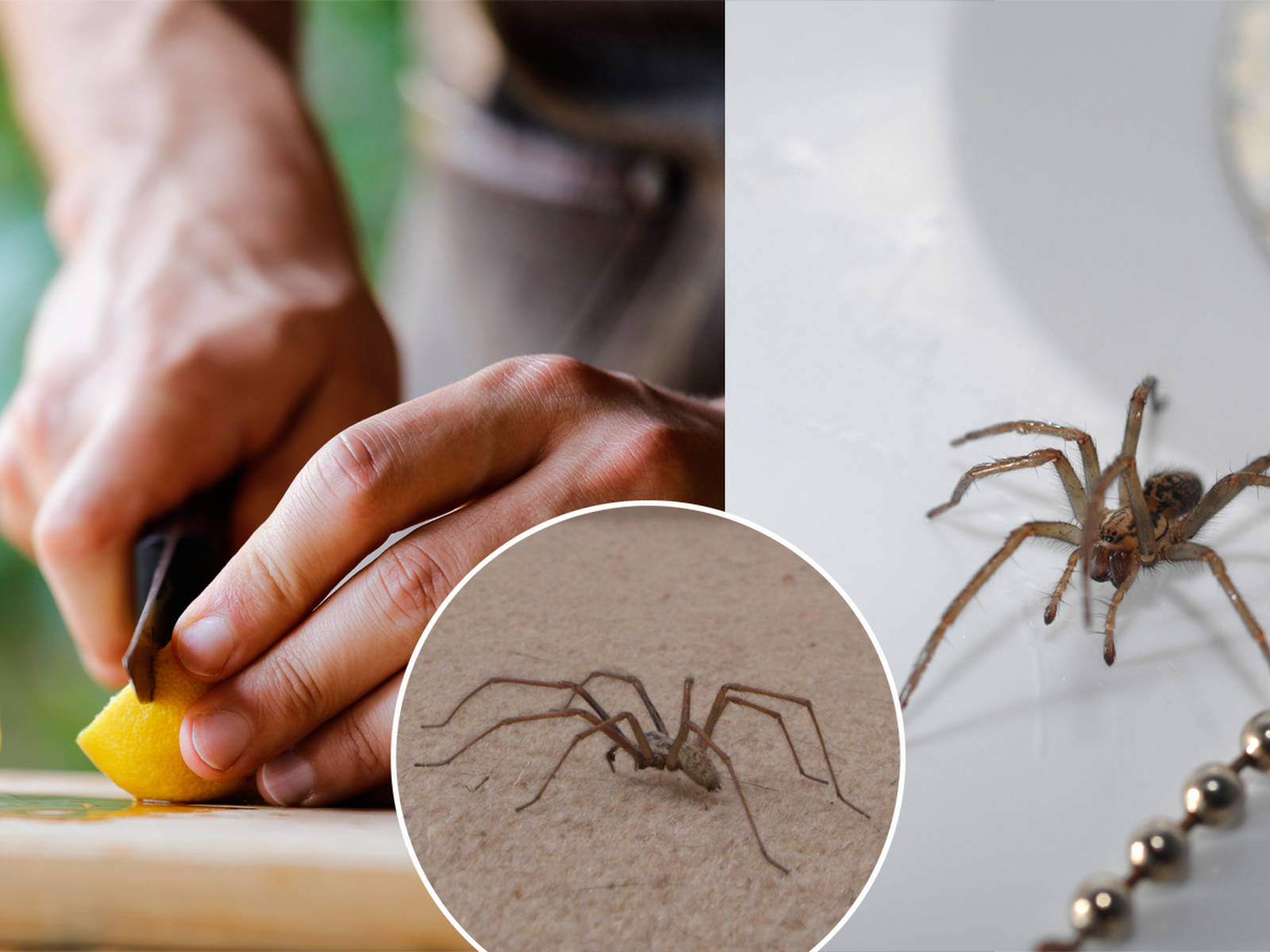
Spiders are a common sight in many homes, and while they can be helpful in controlling other pests, their webs can be a nuisance. Not only can spider webs make your home look unkempt, but they can also trap dust and debris, leading to a less healthy living environment. Fortunately, there are several easy and effective ways to prevent spider webs from appearing in your home. From natural repellents to simple cleaning tips, read on for our top suggestions to keep your house spider-web free.
Keeping Your House Clean and Tidy
Keeping your house clean and tidy is one of the best ways to prevent spider webs from appearing in your home. Spiders are attracted to cluttered and dusty areas because they provide the perfect place for them to build their webs and hunt for prey. To keep spiders at bay, it's important to keep your home as clean and clutter-free as possible. Start by regularly dusting and vacuuming all areas of your house, including floors, ceilings, corners, and windowsills. Be sure to pay special attention to areas that tend to accumulate dust, such as behind furniture and appliances, and in corners of rooms.
In addition to regular cleaning, it's also important to keep your home free of clutter. Spiders are attracted to piles of clothing, books, and other objects, so try to keep these items stored away in closets or drawers. Be sure to also declutter any areas that tend to accumulate piles of papers, such as home offices or desks. By keeping your house clean and tidy, you can reduce the likelihood of spiders making themselves at home in your living spaces. Plus, you'll enjoy the added benefits of a cleaner and more organized home overall.

Use Natural Spider Repellents
If you are looking for a natural way to keep spiders out of your home, there are a number of ingredients and substances that are known to repel them. An effective natural spider repellent includes:
- Peppermint Oil: Spiders hate the scent of peppermint oil, so placing a few drops of the oil in areas where spiders tend to congregate, such as in corners or near windows, can help keep them away.
- Vinegar: The acidic smell of vinegar is another natural spider repellent. Mix equal parts white vinegar and water in a spray bottle and apply to areas where spiders are likely to appear.
- Citrus: Spiders dislike the scent of citrus fruits, so placing slices of lemon or orange in areas where spiders tend to congregate can help keep them away.
- Cedar: Cedar wood and cedar oil are natural spider repellents, so using cedar hangers or sachets in your closets and drawers can help keep spiders away from your clothing.
- Eucalyptus: Like peppermint oil, eucalyptus oil has a strong scent that spiders dislike. Placing a few drops of the oil in a spray bottle with water and spritzing it in areas where spiders are likely to appear can help repel them.
While natural spider repellents can be effective, it is important to note that they may need to be reapplied periodically in order to maintain their effectiveness. Additionally, some natural repellents may not be suitable for use in all areas of the home, so it is important to do your research and test any new repellents in a small area before using them more widely.

Seal Up Cracks and Crevices
Sealing up cracks and crevices in your home is another effective way to prevent spiders from entering. Spiders can enter through even the tiniest of gaps, so it's important to be thorough when sealing up your home. Some common areas to check for cracks and gaps include windows, doors, vents, pipes, and electrical wiring. To seal up these gaps, you can use a variety of materials, including caulk, weatherstripping, and foam sealant. Caulk is a popular choice for sealing gaps in windows and doors, while weatherstripping is ideal for sealing gaps around doors and windows. Foam sealant can be used to fill larger gaps around pipes and electrical wiring.
It's also a good idea to inspect the exterior of your home for cracks and gaps, as spiders can enter from outside as well. Look for gaps around the foundation, as well as any gaps in the siding or roof. Seal up any gaps you find using the same materials you would use indoors. By sealing up cracks and crevices in your home, you'll not only prevent spiders from entering, but you'll also help to improve your home's energy efficiency and reduce your utility bills.

Remove Webs and Egg Sacs When You Spot Them
Removing spider webs and egg sacs as soon as you spot them is an important step in preventing spiders from taking up residence in your home. Spider webs not only look unsightly, but they also attract more spiders and can make it easier for them to move around your home. To remove spider webs and egg sacs, use a vacuum or a broom to gently sweep them away. Be sure to wear gloves and protective clothing, as some spiders can be venomous and their bites can be dangerous. You can also use a sticky trap to catch spiders as they move around your home.
It's important to note that while removing spider webs and egg sacs is an effective way to prevent spiders from taking up residence in your home, it's not a foolproof method. Some spiders are very good at hiding, and may still find their way into your home despite your best efforts. However, by being vigilant and taking steps to keep your home clean and tidy, you can greatly reduce the likelihood of a spider infestation.

Reduce Outdoor Lighting at Night
Reducing outdoor lighting at night is another effective way to prevent spiders from gathering around your home. Spiders are attracted to light, and bright outdoor lights can draw them in and create a breeding ground for them. This is especially true for insects that are attracted to light, such as moths and flies, which spiders like to feed on. To reduce outdoor lighting at night, consider installing motion-activated lights instead of leaving outdoor lights on all night. This will help to reduce the amount of time that lights are on, and will also help to deter burglars and other unwanted visitors.
Another option is to use low-wattage or amber-colored bulbs in outdoor lights. These bulbs emit less light and are less attractive to insects and spiders than traditional white bulbs. In addition to reducing outdoor lighting at night, it's also a good idea to keep outdoor areas around your home well-maintained. Remove any debris, such as piles of leaves or wood, which can provide shelter for spiders and their prey. By keeping your outdoor areas clean and uncluttered, you'll help to reduce the likelihood of a spider infestation in your home.




